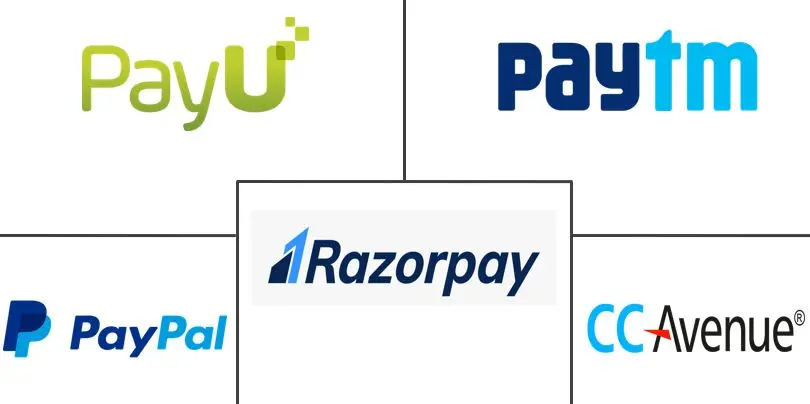AUTHOR : HANIYA SMITH
DATE : 13/10/2023
Introduction
In the rapidly evolving world of e-commerce, the payment gateway industry[1] plays a pivotal role. India, with its burgeoning online market, has witnessed significant growth in this sector. This article will delve into the payment gateway[2] industry in India, exploring its evolution, challenges[3], key players, and also the impact of government policies.
The Emergence of Digital Payments
A Digital Revolution
The past decade has witnessed a digital revolution in India. The government’s “Digital India[4]“ campaign and also the proliferation of smartphones have paved the way for the adoption of digital payment methods.
Growth of E-commerce
The growth of e-commerce platforms has played a crucial role in the expansion of the payment gateway industry. Customers now prefer making cashless transactions, increasing the demand also for reliable payment gateways[5].
Key Players in the Indian Payment Gateway Sector
Industry Leaders
Companies like Razorpay, PayU, and CCAvenue have established themselves as industry leaders. Their user-friendly interfaces and also robust security measures make them popular choices for businesses of all sizes.

Emerging Startups
India’s startup ecosystem has given rise to innovative payment gateway solutions like Instamojo and also Cashfree. These startups focus on simplifying the payment process for small and medium-sized businesses.
Challenges Faced by the Payment Gateway Industry
Regulatory Hurdles
The payment gateway industry is heavily regulated in India. Compliance with RBI guidelines and also the changing regulatory landscape pose challenges for businesses operating in this space.
Security Concerns
With the rise in cyber threats, ensuring the security of online transactions is a constant concern. Payment gateways need to stay one step ahead in protecting customer data.

Impact of Government Policies
Promoting Digital Transactions
The Indian government has taken several measures to promote digital transactions, such as the demonetization drive and also the implementation of the Unified Payments Interface (UPI). These initiatives have positively impacted the payment gateway industry.
Data Localization
The government’s push for data localization has created a need for Indian data centers, providing new opportunities for the industry.
Future Trends in the Payment Gateway Industry
Contactless Payments
With the COVID-19 pandemic, also contactless payments have gained momentum. The industry is likely to see more innovations in this direction.
International Expansion
Indian payment gateway companies are eyeing global markets, indicating a shift towards international expansion.
Security and Data Privacy also
Security and data privacy are paramount in the payment gateway industry. Customers trust these gateways with their sensitive financial information, making it crucial to ensure that all transactions are secure. Payment gateway providers employ state-of-the-art encryption techniques and also tokenization to safeguard customer data. In addition to this, they continually update their systems to stay ahead of evolving cyber threats. The industry is also guided by strict compliance regulations from the Reserve Bank of India (RBI), which require payment gateways to implement robust security measures.
Technological Advancements

Innovation is the lifeblood of the payment gateway industry. Advancements in technology [1]have led to the introduction of various payment methods, such as mobile wallets, UPI, and also contactless payments. These innovations make transactions quicker and more convenient for consumers. With the advent of artificial intelligence and machine learning, payment gateways are becoming more adept at identifying and preventing fraudulent activities, further enhancing security.
Collaboration and Integration also
Payment gateway providers often collaborate with e-commerce [2]platforms, enabling seamless integration of their services. This integration simplifies the payment process for both businesses and consumers. Furthermore, partnerships with banks and also financial institutions allow payment gateways to expand their reach and offer a wide range of services, including international transactions.
International Expansion
The success and expertise of Indian payment gateway companies have led to international expansion. These companies are setting their sights on global markets, seeking to replicate their success abroad. Their experience in handling a diverse and also large customer base in India positions them well for international expansion.
The Role of Fintech Startups
Fintech startups have played a significant role in driving innovation in the payment gateway[3] industry. They focus on creating user-friendly solutions for small and also medium-sized businesses, enabling them to accept digital payments effortlessly. These startups often challenge traditional payment gateways by offering competitive pricing and tailor-made solutions.
The Importance of Customer Support

In the payment gateway industry, customer support is a critical factor. Businesses rely on prompt assistance when technical issues arise. Many payment gateway providers offer 24/7 customer support to address concerns and provide guidance, contributing to a smooth and also reliable payment experience for their clients.
Conclusion
The payment gateway industry in India is on an upward trajectory, driven by the surge in e-commerce, government initiatives, and a growing preference for digital transactions. As the industry continues to evolve, businesses will need to adapt to regulatory changes and also security concerns to thrive in this dynamic landscape.
FAQs
1. What is a payment gateway?
A payment gateway is a technology that allows online businesses [4]to accept payments from customers via the internet. It acts as an intermediary between the customer, the e-commerce website, and also the bank.
2. Which payment gateway is the most popular in India?
In India, popular payment gateways include Razorpay, PayU, and CCAvenue. These companies have gained popularity for their reliability and also security features.
3. How has the government contributed to the growth of the payment gateway industry in India?
The Indian government’s initiatives, such as the “Digital India” campaign and the promotion of digital transactions, have significantly contributed to the growth of the payment gateway industry.
4. What are the security measures taken by payment gateway providers?
Payment gateway providers employ various security measures, including encryption, tokenization, and fraud detection systems, to protect customer data and also transactions from cyber threats.





